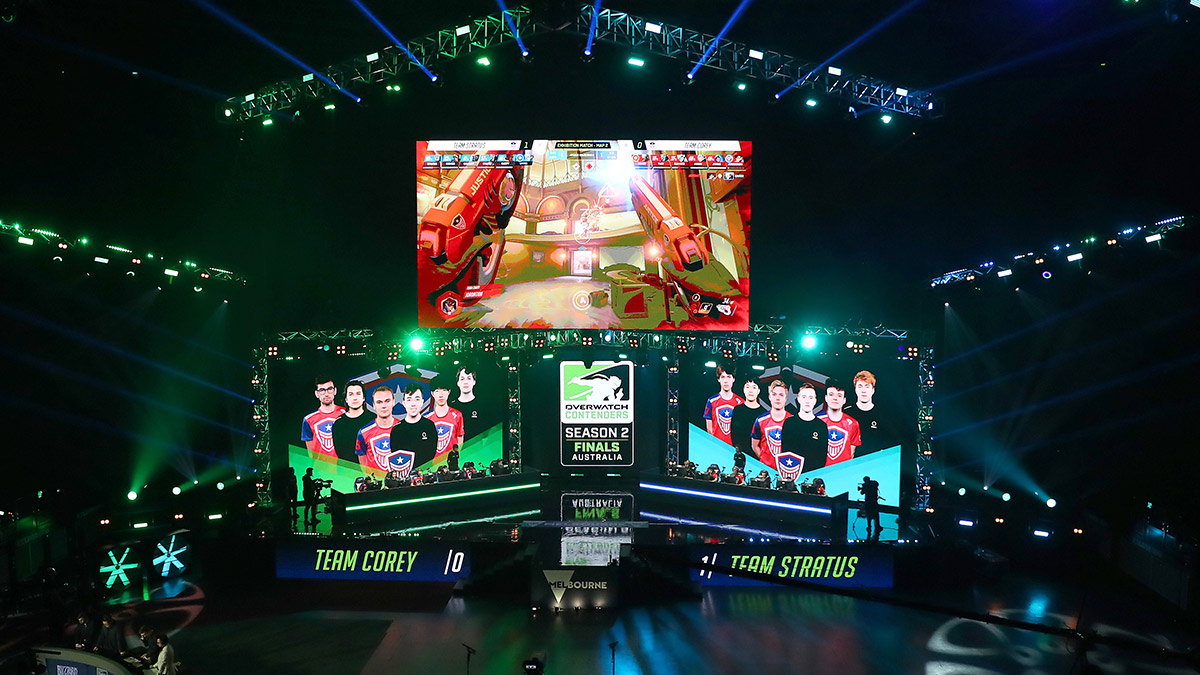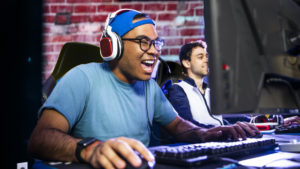ASX small caps look to capitalise as global brands chase esports $$$

Industry research indicates global esports revenue will top $US1 billion for the first time in 2020. (Pic: Getty)
Across multiple channels, the global online gaming market has established itself as big business.
Research from industry group NewZoo suggests gamers around the world are expected to spend $US159.3bn (~$220bn) in 2020 across mobile, PC, and console gaming devices.
But while such data points can offer an indicative guide to market size, those kinds of figures have been well-documented for a number of years now.
What’s more important for investors is how companies can provide evidence of strategic execution to get a piece of that pie and grow profits themselves.
The right business model
That’s particularly so in the wake of COVID-19, where gaming and esports – along with other sectors such as remote-work technology and telehealth – have picked up a tailwind from the extended period of enforced lockdowns.
Major global players such as Hong Kong-listed Tencent Holdings and US-based Activision have both seen their share price climb more than 50 per cent of their March lows.
As a comparison, here’s a summary of how ASX-listed small caps in the space have performed in that time:
| Code | Name | Price | 12 Month % Return | 6 Month % Return | Market Cap |
|---|---|---|---|---|---|
| MSM | MSM CORPORATION | 0.037 | 362.5% | 184.6% | $36.1M |
| EM1 | EMERGE GAMING LTD | 0.024 | 4.2% | 108.3% | $15.8M |
| ICI | ICANDY INTERACTIVE LTD | 0.017 | -50.0% | -32.0% | $6.6M |
| ESH | ESPORTS MOGUL LTD | 0.005 | -54.5% | -44.4% | $9.2M |
| KNM | KNEOMEDIA LTD | 0.015 | -60.5% | -28.6% | $14.5M |
| SHO | SPORTSHERO LTD | 0.023 | -68.5% | -30.3% | $7.2M |
The numbers indicate that while the industry is big, listed players are still working for the most part to validate their business models in the eyes of investors.
The standout performer so far this year is MSM Corp (ASX:MSM), which has more than doubled in the 2020 year-to-date.
Within its broader content offering the company has dialled in on the esports market, where NewZoo expects revenues to top $US1bn (~$1.4bn) in 2020 for the first time from a global audience reach of around 500 million.
Around three quarters of that is expected to come from sponsorships and media rights.
And according to Paul Roy — CEO of the Galaxy Racer esports group — that’s part of a broader trend taking place that may surprise some observers less familiar with the sector.
“There’s a lot of brands getting into esports today, and it’s not necessarily the people you’d expect,” he told Stockhead.
Global fashion conglomerate LVMH (which owns the Gucci brand) is one such example of companies in traditional industries pivoting their strategy.
“Gucci just announced their biggest ever partnership in the space, and if you download the Gucci app there’s a section called Gucci Arcade,” Roy said. “They’re getting heavily into esports because they know it’s an important market.”
Galaxy Racer is a subsidiary of the Riva Group, a Dubai-based company that last year signed a strategic partnership with MSM to help drive distribution channels for MSM’s Megastar gaming platform.
Under Megastar, MSM releases various online strategy games such as Terminator: Dark Fate, which the company said in June was approaching 500,000 downloads.
But it’s in esports where Roy is hoping to capitalise on the tailwind created from COVID-19 to build a first mover advantage in new markets.
Platform approach
“The main focus for us is on building a roster of teams like any sports organisation,” Roy said.
Alongside that, esports companies also need to capitalise on the opportunity to benefit from fundamental shifts in consumer behaviour taking place within the 16-24 age demographic, Roy said.
In short, regular TV and streaming programs are out, and gaming and mobile electronic devices are in.
While China and the US are the two largest esports markets globally, Roy said Riva’s position as a Dubai-based company gave it an opportunity to establish tournaments and build a scouting network through the Middle East and South-East Asia, including the large Indian market.
Roy said the Middle East was an important market because “what it lacks in terms of people it makes up in spend”.
“Spend per gamer in the Middle East is about 3.5 times the global average. China is the world’s number one mobile gaming market, but the average gamer in the Middle East spends 2.5 times more than a Chinese customer.”
The company recently filled out its roster for the multiplayer battle game Dota 2, which last year had a global prize pool of more than $US30m (~$42m).
Building a roster of influential players then provides the gateway to broader content delivery plants that advertisers are targeting.
“I’m talking about not just esports athletes, also gaming influencers who create funny important content,” Roy said.
“The most important thing is that at least one core aspect of MSM will be to pivot into esports content delivery.
“The moment you create a content delivery platform, you’re revenue generative once you have a certain volume of users, and that’s what brands want to see.
“One thing esports has proven is that more brands are heading towards it just because of the kind of user engagement it has and brand recall.”
Roy said a good comparison was traditional live sports, where brand names were positioned at the edge of the field of play compared to esports where the placement could be a lot more targeted.
“There isn’t a major platform readily available for the Middle East and those south Asian markets,” Roy said.
“Twitch and Youtube are really popular in their respective zones, but our aim is to build out that platform with regional influencers and then slowly expand into other key areas.”
Related Topics
UNLOCK INSIGHTS
Discover the untold stories of emerging ASX stocks.
Daily news and expert analysis, it's free to subscribe.
By proceeding, you confirm you understand that we handle personal information in accordance with our Privacy Policy.







